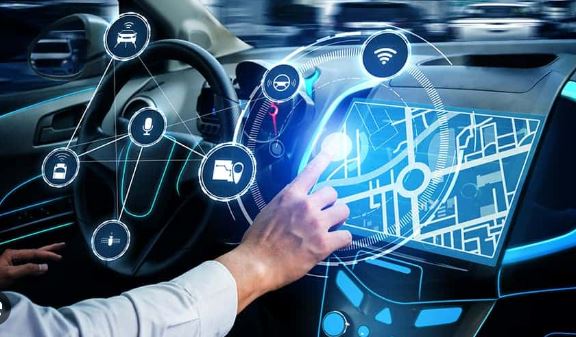In the ever-evolving landscape of eco-friendly transportation, Electric Vehicles (EVs) and Hydrogen Fuel Cell Vehicles (FCVs) have emerged as two frontrunners in the race to reduce greenhouse gas emissions and pave the way for a more sustainable future. As we embark on this journey towards cleaner mobility, it’s essential to weigh the advantages and disadvantages of these two technologies. In this article, we’ll explore the key differences between EVs and FCVs while considering the role of sustainability in car removal Brisbane.
Electric Vehicles (EVs): Silent Pioneers
Electric Vehicles, powered by electricity stored in batteries, have witnessed exponential growth in recent years. The technology behind EVs has matured, making them a popular choice among environmentally-conscious consumers. Here are some key advantages:
- Zero Emissions: EVs produce zero tailpipe emissions, contributing significantly to air quality improvement in urban areas. They are a step toward mitigating climate change when powered by renewable energy sources.
- Cost Efficiency: Electricity is generally cheaper than hydrogen. As EV infrastructure continues to expand, charging your EV at home becomes increasingly convenient and cost-effective.
- Performance: EVs are known for their instant torque, providing a smooth and powerful driving experience.
- Charging Infrastructure: The charging network for EVs is already well-established, making it easier for EV owners to find charging stations, including car removal services for older, gasoline-powered vehicles in Brisbane.
However, EVs also have their limitations:
- Limited Range: Despite advancements in battery technology, EVs generally have a shorter range compared to FCVs.
- Charging Time: Charging an EV can take several hours, although fast-charging stations are becoming more common.
Hydrogen Fuel Cell Vehicles (FCVs): The Promise of Hydrogen
Fuel Cell Vehicles, on the other hand, use hydrogen to produce electricity through a chemical reaction in a fuel cell stack. FCVs have their own set of advantages:
- Extended Range: FCVs typically offer a longer driving range than most EVs, making them suitable for long-distance travel.
- Quick Refueling: Refilling a hydrogen tank takes a similar amount of time to filling a gasoline tank, offering a familiar experience for drivers.
- Zero Emissions: Like EVs, FCVs produce zero tailpipe emissions; the only byproduct is water vapor.
However, FCVs face challenges as well:
- Limited Infrastructure: Hydrogen refueling stations are sparse and concentrated in select regions, limiting the convenience of FCVs in many areas.
- Production and Transport: Producing, storing, and transporting hydrogen can be energy-intensive and expensive.
- Safety Concerns: Hydrogen is highly flammable, which raises concerns about safety in case of accidents.
Now, let’s tie this back to sustainability in Brisbane, specifically focusing on car removal. As the world transitions to cleaner transportation, there is a growing need for the responsible disposal of older, polluting vehicles. Car removal services in Brisbane play a crucial role in ensuring that these vehicles are properly recycled and do not harm the environment. Transitioning from internal combustion engine vehicles to EVs and FCVs reduces the demand for gasoline-powered cars, ultimately lessening the need for car removal services for these outdated vehicles. Also visit classic vs modern car to learn more.
Sustainable Car Removal in Brisbane: An Eco-Conscious Approach
When discussing sustainability in the context of the automotive industry, it’s essential to consider not just the greener alternatives like Electric Vehicles (EVs) and Hydrogen Fuel Cell Vehicles (FCVs), but also the responsible disposal of older, more polluting vehicles. Car removal services in Brisbane have a significant role to play in this transition towards a cleaner, more eco-conscious future.
Recycling and Reuse:
One of the primary goals of sustainable car removal is to recycle as much of the vehicle as possible. This process includes salvaging valuable components, such as the engine, transmission, and other parts, for reuse. It not only reduces the demand for new parts but also lessens the environmental impact associated with manufacturing new components.
Proper Fluid Disposal:
Old vehicles often contain hazardous fluids, including engine oil, transmission fluid, and coolant. Sustainable car removal services in Brisbane adhere to strict environmental regulations to ensure these fluids are safely drained, collected, and disposed of, preventing contamination of soil and water.
Reducing Carbon Footprint:
Transitioning away from gasoline and diesel-powered vehicles to EVs and FCVs is a significant step towards reducing the carbon footprint. Sustainable car removal complements this effort by taking old, high-emission vehicles off the road, reducing overall greenhouse gas emissions.
Battery Recycling:
In the case of EVs, the recycling of lithium-ion batteries is a critical aspect of sustainability. Responsible disposal and recycling of these batteries ensure that valuable materials are recovered and reused, reducing the environmental impact of battery production.
Minimizing Landfill Waste:
Sustainable car removal practices aim to minimize the amount of vehicle waste that ends up in landfills. This aligns with Brisbane’s commitment to reducing landfill waste and promoting recycling and reclamation efforts.
Collaborative Efforts:
Collaboration between local governments, car manufacturers, car removal services, and environmental organizations is crucial. Together, they can work to streamline recycling and disposal processes, develop more sustainable materials for vehicle manufacturing, and expand the charging infrastructure for EVs and hydrogen refueling stations for FCVs in Brisbane.
Public Awareness:
Encouraging Brisbane residents to consider environmentally-friendly alternatives like EVs and FCVs, as well as responsible car removal practices, is vital. Public awareness campaigns can play a significant role in promoting sustainability in the automotive industry.
As Brisbane continues to grow and prioritize sustainability, car removal services are adapting to meet these changing needs. Many car removal companies now specialize in eco-friendly practices, ensuring that old, polluting vehicles are handled in an environmentally responsible manner.
Conclusion
In conclusion, the choice between Electric Vehicles and Hydrogen Fuel Cell Vehicles largely depends on factors like infrastructure availability, driving habits, and personal preferences. Both technologies contribute to a cleaner, more sustainable future for Brisbane and beyond. As the car industry continues to innovate, it is essential to consider not only the vehicles themselves but also the broader ecosystem, including services like car removal, to ensure a greener tomorrow. Sustainable car removal in Brisbane is an essential component of this transition, as it ensures that older, more polluting vehicles are retired in an environmentally responsible way. By combining the adoption of greener vehicles with eco-conscious car removal practices, Brisbane can significantly reduce its environmental impact and contribute to a more sustainable future for all.




